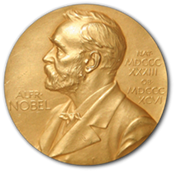Visitors from Afar
Wednesday, November 14th, 2012From time to time we welcome other librarians to Ford. Usually our visitors include fellow business or university librarians from the States with an occasional visitor from Europe or East Asia. However, last week we hosted three librarians from Nazarbayev University located in Kazakhstan’s capitol, Astana.
Their long trip began last year when the Fuqua School announced it would assist Nazarbayev in creating a business school, an essential institution for a country with a growing market economy. So with that announcement, many Fuqua departments, including the Ford Library, began mapping out the resources needed by a top business school. For our guests, however, it meant seeing how we operate at Ford as well as other Duke libraries including Perkins, Rubenstein, Lilly, and the Goodson Law Library. In addition to Duke, they also visited UNC-Chapel Hill’s campus libraries and their School of Information and Library Science. Between visits we made sure to take them to some of the area’s popular sites such as the Nasher Museum, the Sarah P. Duke Gardens, and even a shopping trip to a local mall.
During their visit, we showed them how we order from our vendors such as YBP, and how incoming books were processed. They also had the chance to meet the Slavic acquisitions specialist at Perkins, plus see how librarianship is taught at UNC.
From our visitors, we learned the challenges of starting a new library in a post-Soviet economy. For example, ordering books required knowing which books you planned to purchase over the next year, quite difficult when the books haven’t been published. Plus the books had to be ordered from government approved vendors who may or may not be able to ship the titles when needed. Even with these hurdles, they maintained their enthusiasm for their developing library, university, and country. But throughout, they were excited to be involved, excited to learn new library workflows, and excited to meet the staff.
As we move forward, we look forward to our continued mentoring relationship with our colleagues at Nazarbayev University.

